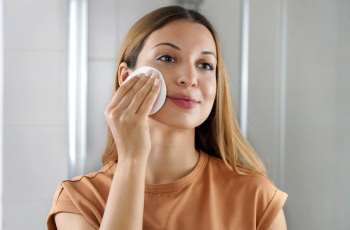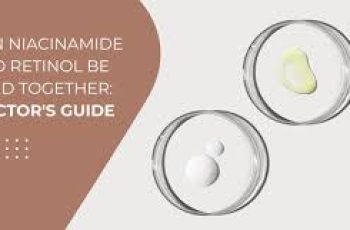
Does Makeup Affect Acne? Understanding the Connection and How to Prevent Breakouts
Acne is often thought of as something that only affects teenagers. While it’s true that hormonal changes during puberty can make adolescents more prone to acne, adults also struggle with this skin issue.
In fact, research has shown that a staggering 54% of women and 40% of men over the age of 25 experience acne. So, if you’re an adult dealing with acne, you’re not alone!
For those who wear makeup regularly, acne can become even more difficult to manage. Makeup products can sometimes contribute to breakouts, especially if the wrong types of products are used.
However, don’t be too quick to ditch makeup altogether. In this article, we’ll explore how makeup can affect acne and provide tips for managing breakouts while still enjoying your favorite beauty products.
Understanding Acne: The Basics
Before diving into how makeup impacts acne, it’s important to understand the fundamental causes of acne. While the exact cause can vary from person to person, three primary factors are typically at play:
Excess Sebum (Oil) Production: Your skin’s sebaceous glands produce oil, which helps keep your skin moisturized. However, excessive oil can clog pores, leading to acne.
Clogged Pores: When dead skin cells build up and mix with excess oil, they can clog pores, which serves as a breeding ground for acne-causing bacteria.
Overgrowth of Acne-Causing Bacteria: Cutibacterium acnes (formerly known as Propionibacterium acnes) is the bacteria responsible for acne.
When pores become clogged, this bacteria can multiply, leading to inflammation and pimples.
Interestingly, acne isn’t only limited to those with oily skin. People with dry skin can also develop acne if their skin struggles to shed dead skin cells properly, leading to clogged pores.
So, no matter your skin type, it’s possible to experience breakouts.
Can Makeup Cause Acne?
You may be wondering how makeup fits into the acne puzzle. The reality is that certain makeup ingredients can contribute to acne, especially for those with sensitive or acne-prone skin.
There’s a specific type of acne known as acne cosmetica, which is triggered by comedogenic (pore-clogging) ingredients in makeup products.
Common culprits in makeup include substances like coconut oil, lanolin, and certain waxes. These ingredients can clog pores and lead to breakouts.
The good news is that acne cosmetica can often be reversed by simply stopping the use of the offending makeup products.
Allowing your skin time to complete its natural healing cycle (usually 8 weeks) can also help clear up the breakouts.
What Does Acne Cosmetica Look Like?
Acne cosmetica usually presents itself as small, raised bumps that can range in color from red to flesh-toned.
These bumps may be pimples, whiteheads, or blackheads and are most commonly found on the forehead, cheeks, or chin.
The key difference between acne cosmetica and other forms of acne is its direct link to makeup use.
If you notice acne flare-ups around the areas where you apply makeup, this might be a sign that certain products are to blame. Switching to non-comedogenic alternatives can make a world of difference.
What’s the Best Makeup for Acne-Prone Skin?
Choosing the right makeup for acne-prone skin can be tricky. However, there are specific guidelines that can help you select the best products to reduce the risk of breakouts.
Look for Non-Comedogenic Products: Non-comedogenic makeup is formulated to not clog pores. Always check the label for this term to ensure that the product won’t contribute to acne.
Opt for Lighter Coverage: Heavy foundations can sometimes suffocate the skin, leading to clogged pores and increased breakouts.
Consider using lighter foundations, such as tinted moisturizers or mineral-based powders, which allow your skin to breathe.
Consider Salicylic Acid: Some foundations for acne-prone skin are formulated with salicylic acid.
This ingredient helps exfoliate the skin and unclog pores, making it a great option for those with acne-prone skin.
Avoid Heavy Oils and Waxes: Ingredients like coconut oil, beeswax, and cocoa butter can clog pores, especially for those with sensitive or acne-prone skin. Make sure to avoid these when selecting makeup.
Makeup Ingredients to Avoid with Acne-Prone Skin
To help minimize the risk of breakouts, it’s essential to avoid certain pore-clogging ingredients. Here are some common ones to watch out for:
Coconut Oil: While great for moisturizing, it can clog pores and exacerbate acne.
Beeswax: Often used in lip balms and foundations, beeswax can trap dirt and oil in your pores.
Cocoa Butter: This thick, moisturizing ingredient can block pores and contribute to acne flare-ups.
Dimethicone: A silicone often found in foundations, dimethicone can trap oil in your pores, leading to breakouts.
Isopropyl Myristate and Isopropyl Isostearate: These two ingredients are common in cosmetics and can increase the risk of pore blockages.
Myristyl Lactate: A fatty alcohol found in makeup, it can lead to clogged pores if you have acne-prone skin.
Red Dyes: Artificial colorants in makeup can irritate sensitive skin, potentially triggering breakouts.
How to Prevent Acne Caused by Makeup
If you love wearing makeup but are worried about breakouts, there are several steps you can take to prevent makeup-induced acne:
Choose Makeup Formulated for Acne-Prone Skin: Many makeup brands now offer products specifically designed for acne-prone skin.
These formulations are usually free of pore-clogging ingredients and can help prevent breakouts.
Incorporate Acne-Fighting Ingredients in Your Skincare: Pair your makeup routine with an acne-fighting skincare regimen.
Ingredients like salicylic acid, benzoyl peroxide, tea tree oil, and retinol are all excellent choices for treating acne.
Opt for Lighter Coverage: Instead of opting for heavy foundations, choose lighter options like mineral powders or oil-free tinted moisturizers. These can provide coverage without clogging your pores.
Always Remove Makeup Before Bed: Never leave makeup on overnight. Sleeping with makeup on can quickly clog your pores, leading to breakouts. Always wash your face thoroughly before going to bed.
Avoid Using Your Fingers to Apply Makeup: Your fingers can transfer oil, dirt, and bacteria to your face. If possible, use makeup brushes, sponges, or applicators.
If you must use your fingers, make sure to wash them first.
Keep Your Makeup Brushes Clean: Dirty makeup tools can harbor bacteria and oils that contribute to acne. Clean your makeup brushes and sponges regularly to keep them free of harmful buildup.
Bottom Line: Can You Wear Makeup with Acne-Prone Skin?
Yes, you can still wear makeup even if you’re prone to acne. The key is to choose the right products that are gentle on your skin and formulated to avoid clogging your pores.
Be sure to select makeup that’s non-comedogenic and tailored to your skin type.
Additionally, pairing your makeup routine with an acne-fighting skincare regimen will help keep breakouts under control without worsening dryness or irritation.
With the right approach, you can enjoy makeup while keeping your skin clear and healthy.


